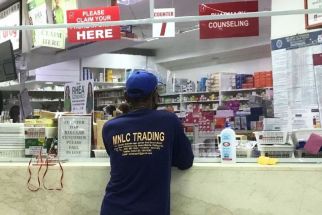Unesco official calls for responsible environment leadership
In an interview, Karl Lindberg, a member of the UNESCO High-Level Panel on Education for Sustainable Development at the four-day Education for Sustainable Development (ESD) media workshop here, said he called for parliamentarians worldwide to promote sustainable development to protect the earth against environment degradation.
“Honest parliamentarians all over the world ought to promote sustainable development because it was a decision (taken) in the
Lindberg said on the contrary, he is active in the campaign against the death penalty.
“In
Earlier, Lindberg said in
“Honest parliamentarians must work for sustainable development and one is the protection of the forests,” he said, adding, “In Sweden, we have laws on the forests that do not allow companies to do whatever they want.”
Environment laws must be strong and violators must be prosecuted. “That is according to law, of course. There must be strong laws in these issues because they are important for every human being,” he added.
Lindberg said climate change, a result of the degradation of the environment all over the world, is not just an environment issue as most people believe.
“It is an all-encompassing threat. It is a threat to health since a warmer world is one in which infectious diseases such as malaria and yellow fever will spread further and faster.”
Lindberg warned that climate change could imperil the world’s food supply as rising temperatures and prolonged drought render fertile areas unfit for grazing and planting.
“It could endanger the very ground on which nearly half the world’s population live, (such as) coastal cities like Lagos or Capetown, which face inundation from sea levels rising as a result of melting icecaps and glaciers,” he said.
Lindberg said climate change “is not science fiction but plausible scenarios, based on clear and rigorous scientific modeling.”
Lindberg presented a 10-point agenda for world leaders and UNESCO:
• Inform as many people as possible about the aims of the UN Decade of Education for Sustainable Development (DESD 2005-2014), particularly journalists who work on educational issues.
• Call on Ministers of Education to develop action plans on ESD, giving government agencies clear roles and responsibilities, and request that all relevant legislation and regulation reflect the importance of ESD.
• Inform the general public about strategies for sustainable development and the link between ESD and these strategies.
• Inform government and other stakeholders of the United Nations Economic Commission for Europe (UNECE) strategy on ESD, adopted in March 2005.
• Call on National Governments to act as driving forces for ESD in different international assemblies, for example within UNESCO, the Council of Europe, the UN Commission on Sustainable Development and the EU.
• Call on Members of Parliament to raise the importance of ESD with the government.
• Call on National Government bodies and agencies for international aid and cooperation, in their negotiations with the countries receiving support in the education area, to impose the condition that educational activities present the perspective of sustainable development.
• Make politicians in local and regional governments, especially those responsible for school issues, aware that ESD is an important dimension.
• Ensure that conferences dealing with any aspect of sustainable development always discuss the importance of the role of education.
• Urge national and international NGOs to inform their supporters and staff about ESD and monitor how National Governments meet their international commitments.
- Latest
- Trending





























